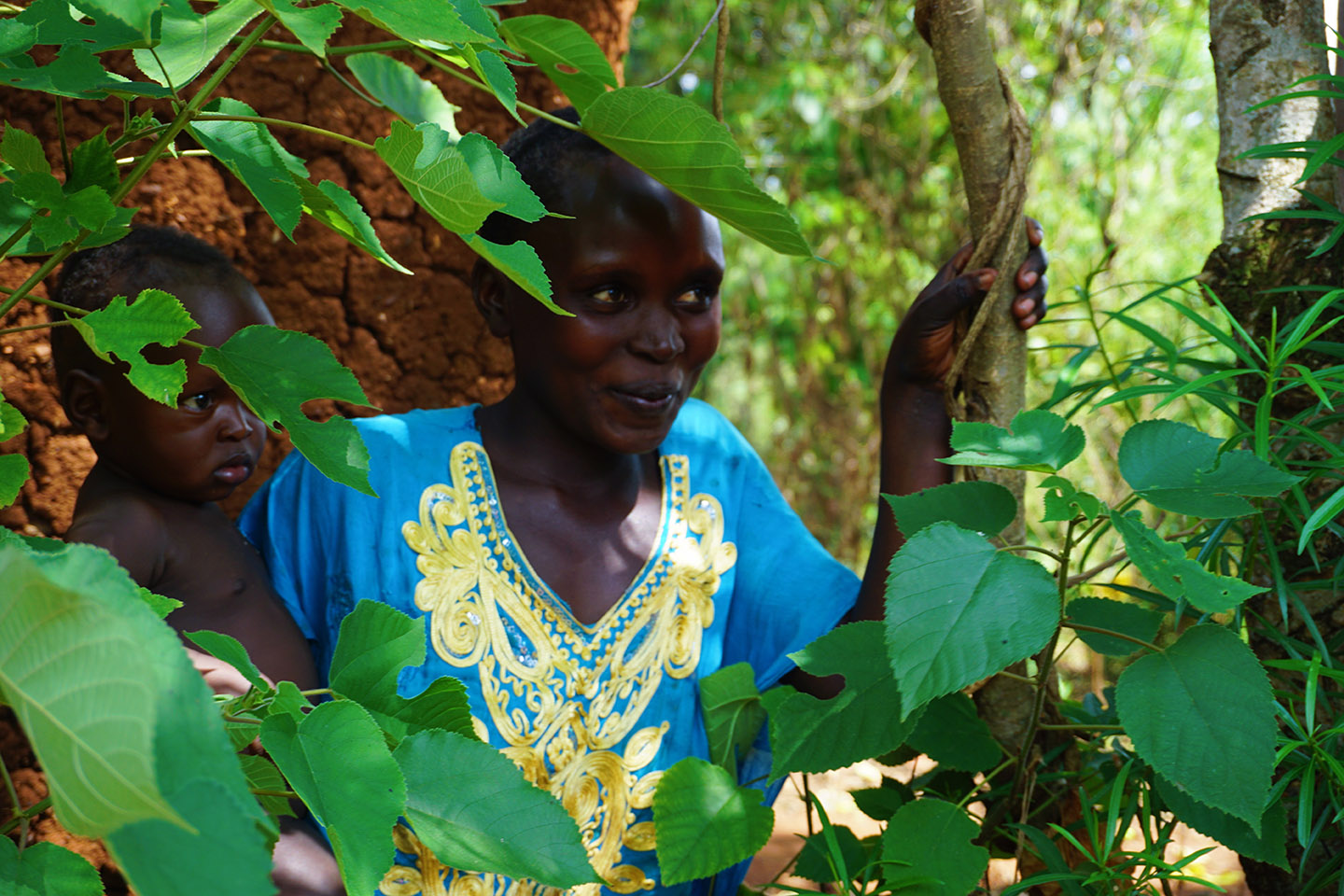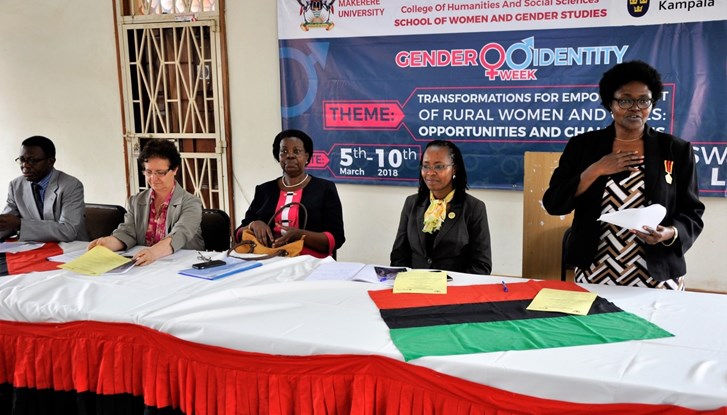The search for practical ways of addressing domestic and gender-based violence, Online Discussion.


The Gravity of Domestic violence is most often felt when the incidence of violence comes close to threatening someone’s life or when the violence ends in death. But this should not be the case because domestic violence is harmful in subtle but also explicit ways. Gender Based Violence is an umbrella term used to describe any harmful act that is perpetrated against a person’s will and is based on socially ascribed (gender) differences between males and females. Major categories of Gender Based Violence (GBV) include Physical, Sexual and Emotional Violence. UBOS (2013)
On the 21st December 2020, the School of Women and Gender Studies Makerere University and the University Forum on Governance with support from Democratic Governance Facility (DGF) hosted the first virtual round table domestic violence under the theme “In search for practical ways of addressing Domestic and Gender Based Violence at a local level” as part of its Gender Equality Project.
The Virtual webinar, hosted on zoom by Assoc. Prof. Sarah Ssali – Dean School of Women and Gender Studies, Makerere University featured three panelists; Dr. Anena Catherine a Lecturer, School of Women and Gender Studies Makerere University, Mr. Jesse Mugero a Programme Associate. International Centre for Transitional Justice and Ms. Tina Musuya, The Executive Director, Centre for Domestic Violence Prevention. They shared insights on critical yet practical ways to detect and respond to Domestic Violence in a discussion moderated by Dr. Florence Ebila, Lecturer School of Women and Gender Studies, Makerere. Particularly, they provided explanations for the increasing cases of domestic and gender based violence; located the legal ecosystem in providing appropriate distinctiveness to the perpetrators, and examined the strategies that can be adopted for reducing the increasing incidents of gender based and domestic violence. Participants critically reflected on questions such How do I know I am abused? When do I know it is enough? Why do people stay? Is SGBV circumstantial?.
When Dr. Anena Catherine unpacked domestic violence, the realization of having been abused donned on many. She defined domestic violence as “a pattern of behavior in any relationship that is used to gain or maintain power and control over an intimate partner or any other family member. It may include children and elder land and other people in the household”. She noted that between January 2020 and June 2020, the number of cases of domestic violence that were reported at the child and Family Protection Department had risen from (1,539 cases in January to 2,365 cases in June) She expounded on a number of issues relating to how domestic violence presents to include;- Physical (slapping, kicking and beating); Sexual forms (rape, marital rape/date rape or deflects the victims’ sense of self-worth /self-esteem, constant criticism, name-calling, injuring the victims’ relationship with his/her children); Psychological ( invoking fear through intimidation, threatening to physically hurt himself /herself, the survivor, children, the survivors family or friends; destruction of property; isolating the survivor from their loved ones, and prohibiting the survivor from going to school or work. Can also include stalking, cyberstalking, cyber harassment ); Economic (attempt to make the survivor financially dependent – total control over financial resources, withholding access to funds, or prohibiting the survivors from going to school or work.
The Risk Factors for violence were discussed to include:- Economic depended on the perpetrator, Perceived or actual dependency on the perpetrator, Low self-esteem, Mindset Change, Learned behavior from Childhood, Social acceptance and normalization of Violence, anger management issues Functionality and mental health disorders. Rising cases of domestic violence were attributed to Increased reporting due to awareness, increased points of reporting where cases can now be documented, Poor conflict resolutions skills, Breakdown of social support mechanism, Traditional acceptance of domestic violence within marital relations, The COVID -19 Response strategies such as the Stay Home and the COVI9-19 Lockdown, that meant for many Couples and families that they were not used to staying home long together but as a result of the Lockdown strategy.
The complexities that surround the legal framework and reporting were analyzed in the reflections provide by Mr. Jesse Mugero. In his discussion, he observed that there were existent structures for reporting violence such as the existence of the Penal code, the sexual offenses act. Limitations in achieving Justice were cited to include power and domination in the legislative process such as the marriage and divorce bill frustrated the process, registration of cases, and disclosure in the event that there is no privacy. The lack of evidence and failure to record cases, challenges in the translation of case from native languages to English were cited as challenges in securing a fair judgment as the description of the body parts are tough to translate to English.
Other challenges listed include the loss of interest in the cases, delay in preparing expert reports, Seeking remedy elsewhere, delay in reporting the act and the conviction, and issues such as the accused person skipping bail, settling outside court, death of the accused, delays from expert evidence, human resource limitation, where the procedures and judicial officers are hard to find and Intimidating the witnesses. The panelist concluded by emphasizing the need for strengthening existing good legal frameworks, gender-sensitive laws, continuous awareness-raising on domestic violence, and advocacy for legal reforms.
Regarding the Strategies to adopt for reducing cases of gender based violence, Ms. Tina Musuya observed that the risk factors of violence were multiple and must be addressed using a social ecology model by involving the whole society. She recommended addressing risk factors at the individual level and supporting individuals to develop more gender-equitable decisions; addressing male privilege that is embedded in belief systems, supporting boys, men and women and girls to unlearn inequitable ways of living, encourage respect of each other, and promoting gender equality in intimate relations to ensure co-sharing in decision making. Work towards solving social problems, she observed the need for addressing power dynamics; Transform gender norms that cause violence; supporting laws that promote access, that criminalize violence and that protect the right to make and generate income; Investing in gender transformative training, Survivor centered support and training of legal.
By way of concluding, she observed that gender based violence in a patriarchal society keeps mutating and urged for continuous support and engagement in the environments in which people live.
By and large, The emerging insights for grassroots responses were emphasized:-The need for everyone to take responsibility and pay keen attention to Violence in their communities, to build the right agency among girls and boys, the need to sensitize more people about the referral protocols and legal frameworks and support structures that are available, and the need for a social-ecological model that ensures everyone is involved were some of the strategies strengthened by the Panelists.
Compiled by Winnifred Akeso, Student MA Gender Studies.

